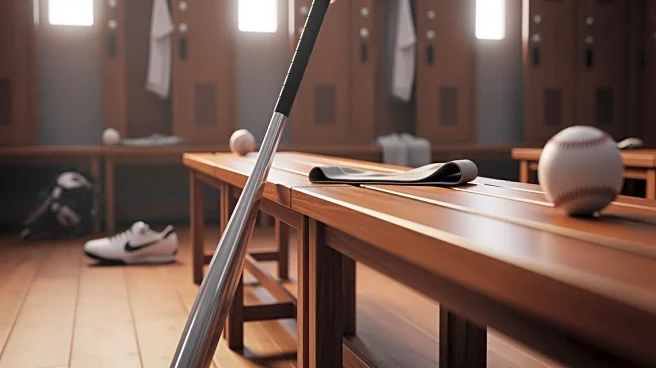What's Happening?
Yankees star Aaron Judge will not require surgery for his right elbow injury, as confirmed by manager Aaron Boone. Judge suffered a flexor tendon strain in July, which limited his throwing capabilities.
Despite the injury, Judge returned to play in August, initially as a designated hitter, before resuming his position in right field in September. An MRI has shown that surgery is unnecessary, and Judge will focus on rehabilitation and strengthening exercises during the offseason. Judge had an impressive 2025 season, leading the American League in several offensive categories, including batting average, on-base percentage, and slugging percentage. He also played a crucial role in the Yankees' postseason performance.
Why It's Important?
The decision for Aaron Judge to avoid surgery is significant for the Yankees and their fans, as it ensures that their star player will be available for the upcoming season without the extended recovery time that surgery would entail. Judge's performance is vital to the team's success, given his leadership in offensive statistics and his contribution to the Yankees' postseason efforts. His ability to continue playing without surgical intervention could positively impact the team's strategy and morale. Additionally, Judge's health is crucial for maintaining his high level of play, which is essential for the Yankees' competitiveness in the league.
What's Next?
Aaron Judge will continue with his rehabilitation and strengthening exercises during the offseason. The Yankees will likely monitor his progress closely to ensure he is fully prepared for the next season. The team's management may also consider adjustments to their lineup and strategy to accommodate Judge's recovery process. Fans and analysts will be watching closely to see how Judge's condition evolves and how it affects his performance in the upcoming season.
Beyond the Headlines
Judge's decision to avoid surgery highlights the importance of non-invasive treatment options for athletes, which can preserve their careers and maintain their performance levels. This approach may influence how other players and teams handle similar injuries, potentially leading to a shift in sports medicine practices. The focus on rehabilitation and strengthening exercises underscores the role of physical therapy in athlete recovery, which could have broader implications for sports health management.









